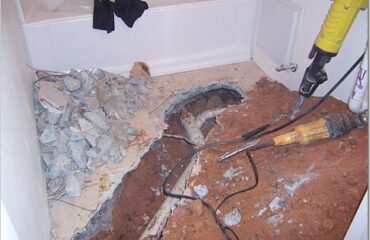Paying more and getting less is the new motto for homeowners stuck with state-run Citizens Property Insurance. Old and new customers alike are getting socked with rate hikes, higher deductibles, more exclusions…and no place else to turn for hurricane coverage.
“I was just so happy to get a renewal notice and not a cancellation notice, I didn’t really pay attention to the other stuff,” said Ira Goldstein, 55, of Delray Beach.
Goldstein’s private insurer dropped him in 2010, when his home developed problems with Chinese drywall. In two years with the state-run insurer of last resort, Goldstein’s premium has jumped from $1,667 to $2,106, a 26 percent increase.
Meantime, Citizens no longer covers things like sheds, pools and screened-in porches.
Higher rates and diluted coverage are going to be recurring themes in coming years for Citizens policyholders, as company executives and state politicians try to shrink the customer base from its current 1.45 million. Citizens, which had only 1 million policies a few years ago, keeps growing as private insurers flee the state or go bankrupt.
The problem: Citizens is a virtual monopoly in many areas, including large swaths of South Florida, so there is no consumer choice. For many of the 337,000 Citizens customers in Broward and Palm Beach counties (myself included), there is no private insurance alternative. And if private insurers won’t come back until rates are allowed to climb to the stratosphere and Citizens bleeds us dry getting there, then a competitive market seems pretty meaningless.
When longtime Fort Lauderdale resident Sherry Friedlander got her Citizens policy renewal earlier this year, she balked at the $4,000 windstorm premium and $38,000 deductible.
“It means I have to pay $42,000 out of pocket before I see one dime after a storm,” said Friedlander, who lives east of Federal Highway. “I called my agent and asked who else is writing hurricane policies. He said, ‘Nobody.’
So she did something dramatic. She dropped her windstorm policy.
“A lot of my neighbors have done the same thing,” Friedlander said. “I’m not happy about it.”
Because she owns her home outright and doesn’t have a mortgage, she has the option of “going naked” when it comes to property insurance. But homeowners with mortgages are required to carry insurance by their lenders. If homeowners can’t find insurance on their own, exorbitant “lender-placed” insurance is imposed.
Property insurance rates might not be high enough to be “actuarially sound” for private insurers spooked by Hurricane Andrew and the freak 2004-2005 storm years, but they’re plenty high enough for homeowners battered by the housing meltdown, flat wages and high unemployment.
Digging through my own records was an eye-opener. When I bought my older home in Dania Beach in 2000, I paid a total of $1,493 for separate windstorm, fire/theft and flood insurance policies. With my latest policy renewals, including a 10 percent increase from Citizens, I’ll be paying just over $5,000 for property insurance this year.
I can only wonder, how much more actuarially sound can things get before we all go broke?


